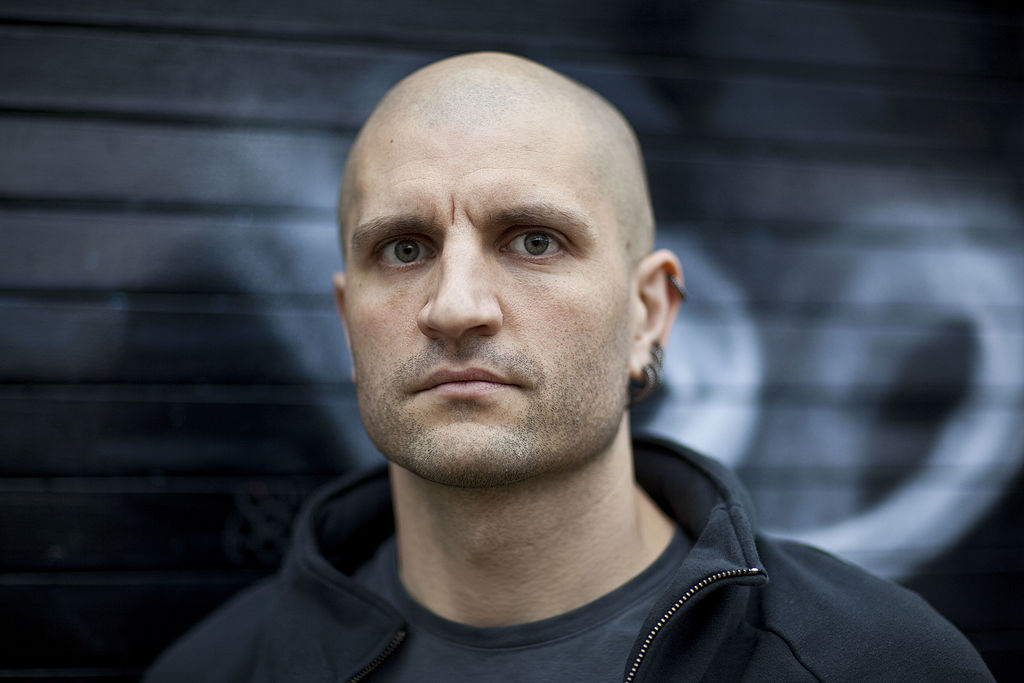Tech News
China Miéville says we shouldn’t blame science fiction for its bad readers

Celebrating its 25th anniversary, China Miéville’s novel “Perdido Street Station” marked a significant moment in literary history, blending science fiction, fantasy, and horror in a richly detailed world of New Crobuzon. This groundbreaking work sparked interest in the “new weird” genre and set Miéville on a path of genre-defying storytelling.
Following the success of “Perdido,” Miéville continued to push boundaries with novels like “The City and the City” and “Embassytown.” After a hiatus from fiction writing, he returned with the bestseller “The Book of Elsewhere,” co-authored with Keanu Reeves. In a recent interview, Miéville discussed the intersection of science fiction with real-world issues, cautioning against interpreting the genre as a blueprint for future endeavors.
Miéville emphasized that science fiction reflects the present rather than predicting the future, highlighting the societal implications of tech billionaires’ futuristic ambitions. While acknowledging the societal and personal distortions that drive such pursuits, he urged against attributing sociopathic tendencies to the genre itself.
As Miéville reflected on the legacy of “Perdido Street Station,” he acknowledged the evolution of fantasy literature and his own place within that tradition. Despite its impact and enduring relevance, he viewed the novel as a product of its time and his youthful perspective.
Reflecting on the impact of “Perdido Street Station,” Miéville explained that while not a deliberate challenge to commercial fantasy trends, the novel represented his vision of the fantasy genre that resonated with him. Drawing inspiration from diverse literary traditions, including the Dying Earth and science fantasy genres, Miéville crafted a narrative that defied conventional tropes and narratives.
As the boundaries between different genres blur and previously niche subcultures gain mainstream attention, Miéville acknowledged the challenges of commodification and dilution of artistic integrity. While welcoming broader recognition for unconventional storytelling, he cautioned against the pitfalls of commercialization and the risk of losing the subversive edge that defined these genres.
In navigating the evolving landscape of speculative fiction, Miéville highlighted the delicate balance between accessibility and authenticity, recognizing the tension between subculture roots and widespread appeal. Despite the complexities of genre evolution, he remained committed to pushing boundaries and challenging readers’ expectations.
You will never figure it out.

Recalling my younger self in high school and college, holding onto “Perdido Street Station” or works by Philip K. Dick or Ursula Le Guin, and proclaiming, “You guys don’t get it, this is amazing.” I had that passionate enthusiasm. Now, when someone exhibits the same fervor for science fiction, I think, “We’ve succeeded. There’s no need for that anymore.”
It also stirs conflicting feelings within me, as I admit: now people are reading these authors, but they don’t truly understand or appreciate them. They haven’t put in the effort.
There’s a certain aspect of nerd gatekeeping that is undeniably toxic, that much is evident. However, I’ve engaged in intriguing discussions with peers about whether there’s any cultural value in needing to work to become part of a subculture. Not physical labor, but the effort of seeking out information, knowing who to ask, and being determined to belong. I tentatively believe that we may have lost something due to the easy accessibility of everything with just a click.
I’m not disregarding the positives of this accessibility, but it would be naive to ignore the potential negatives. There might be a loss of intensity in certain subcultures due to the effortless access to all cultural content.
I tread carefully with these thoughts, as I explore different perspectives. Perhaps one could argue that this is the underlying rationale for the negative nerd policing tendency.
This brings me to another point I wanted to discuss. Lately, I’ve observed more individuals in the tech industry, like Elon Musk, referencing science fiction and treating authors such as Isaac Asimov or Kim Stanley Robinson as blueprints for the future, which I find concerning. Have you noticed this trend as well?
First and foremost, one can only feel sympathy for Kim Stanley Robinson — he doesn’t deserve this.
The Silicon Valley ideology has always been a peculiar blend of libertarianism, hippie culture, tech utopianism, and more — with exceptions, of course, but a significant portion nonetheless.
All ideologies are complex mixes of different elements, often contradictory, and the emphasized aspects vary based on political and economic circumstances.
It’s not a secret that Silicon Valley has long been fascinated by science fiction. Part of this is due to the overlap between the worlds of literary nerds and tech enthusiasts.
I concur with you on several levels. While some science fiction writers may view their work as either a utopian vision or a dystopian cautionary tale, I don’t believe that’s the essence of science fiction. It’s always rooted in the present, reflecting societal issues and serving as a kind of fever dream that mirrors current anxieties. Treating it as a prediction of the future is a categorical mistake.
Furthermore, there are potential pitfalls in aestheticizing science fiction as a cultural form, leading to a tendency to fetishize it easily. This can result in a blurred line between utopia and dystopia, creating a sense of disingenuity.
For instance, when discussing a book like “Neuromancer” — which I admire, by the way — as a dire warning, there’s a part of you, especially as a teenager (as most science fiction enthusiasts are to some extent), that finds the idea of wearing mirrorshades and being cool appealing. So, something labeled as negative and cautionary can paradoxically become highly desirable.
Most notably, what aspects of science fiction are these tech industry individuals drawn to? They are unlikely to be inspired by works like Ursula Le Guin’s “Always Coming Home,” which explores breaking free from materialism. That doesn’t align with their goals.
This observation doesn’t negate the possibility that they might find ways to commodify such ideas. However, the fact that some prioritize colonizing Mars over addressing global issues raises questions about societal and personal values.
Speaking as a fan of Mars-settling narratives, I appreciate these stories. But the notion that one would advocate for settling Mars instead of addressing pressing issues on Earth is both terrifying and laughable.
Let’s not blame science fiction for this mindset. It’s not science fiction causing this kind of sociopathic behavior. I apologize for the hackneyed response, but it all comes down to capitalism.
When I encounter situations like this, my initial reaction is to think, “You guys are missing the point and just focusing on the superficial aspects, rather than the deeper political or social ideas.” However, I also wonder if they are simply following the standard narrative that much of science fiction promotes: the glorification of space exploration and colonization. This leads me to question whether science fiction writers should push themselves to explore different narratives.
I am not here to police anyone’s storytelling. Everyone has the freedom to tell the stories they want, but I reserve the right to offer criticism and analysis.
While I agree with the notion of bad reading, I believe that books are a collaboration between the writer and the reader. The most compelling fiction always contains conflicting elements.
I am cautious about the idea that telling specific stories can prevent people from making certain mistakes. Art does not operate in a linear cause-and-effect manner.
Artists often view their work as a form of political activism, but I believe that art is not inherently activist in nature.
I do not believe that storytelling alone can change the world or influence certain individuals to act differently. However, I am interested in narratives that challenge the status quo and inspire critical thinking.
As for my upcoming book, I have been working on it for over 20 years, and it is a significant milestone in my life. I am excited for its release.
In conclusion, I want to highlight the detrimental effects of social media on humanity. It has the potential to harm our mental well-being and cognitive functions, and I believe it is important to recognize these negative impacts. Please rephrase the following sentence.
-

 Destination8 months ago
Destination8 months agoSingapore Airlines CEO set to join board of Air India, BA News, BA
-

 Breaking News10 months ago
Breaking News10 months agoCroatia to reintroduce compulsory military draft as regional tensions soar
-

 Gadgets3 months ago
Gadgets3 months agoSupernatural Season 16 Revival News, Cast, Plot and Release Date
-

 Tech News12 months ago
Tech News12 months agoBangladeshi police agents accused of selling citizens’ personal information on Telegram
-

 Productivity11 months ago
Productivity11 months agoHow Your Contact Center Can Become A Customer Engagement Center
-

 Gadgets3 weeks ago
Gadgets3 weeks agoFallout Season 2 Potential Release Date, Cast, Plot and News
-

 Breaking News10 months ago
Breaking News10 months agoBangladesh crisis: Refaat Ahmed sworn in as Bangladesh’s new chief justice
-

 Toys12 months ago
Toys12 months ago15 of the Best Trike & Tricycles Mums Recommend























